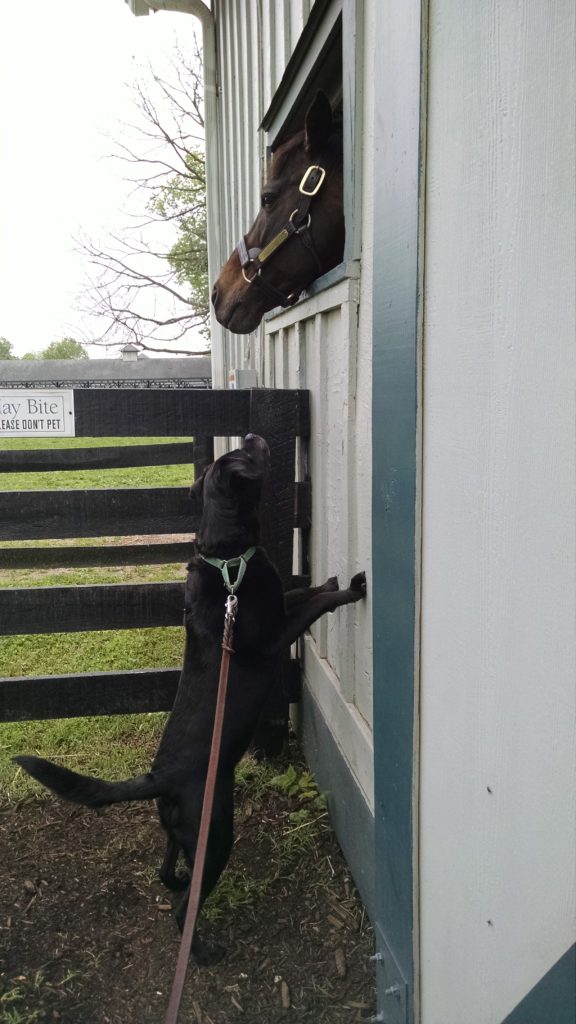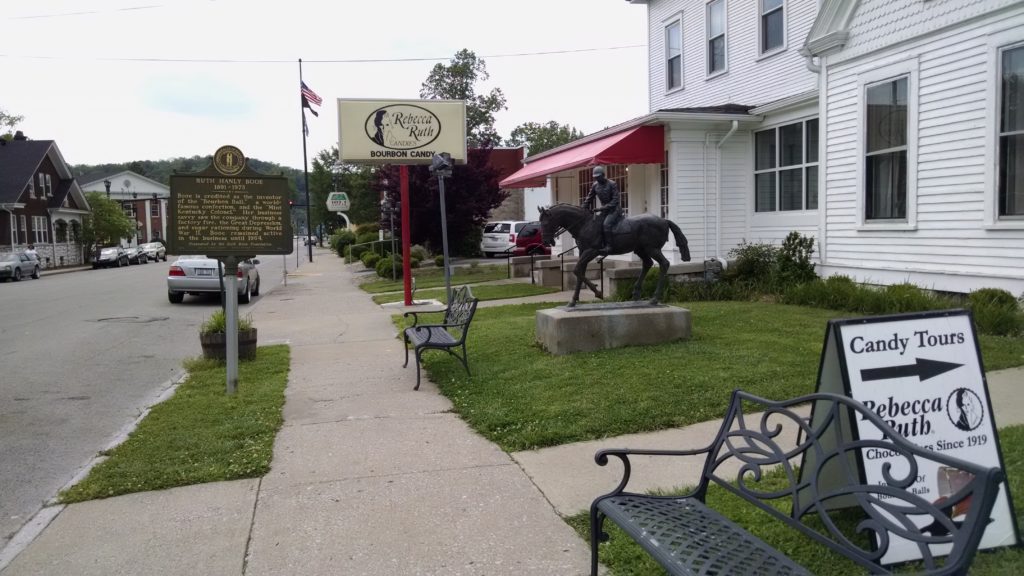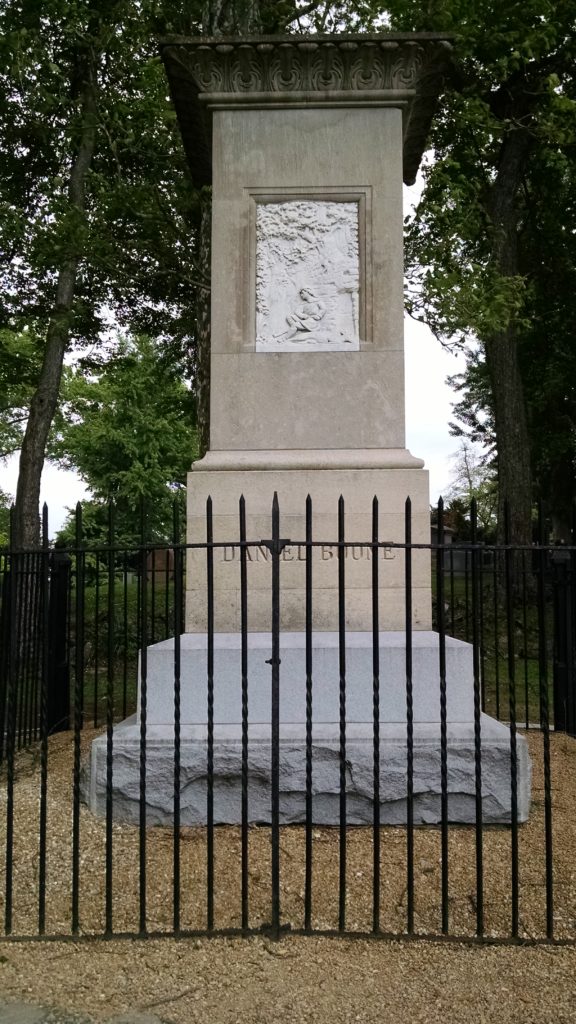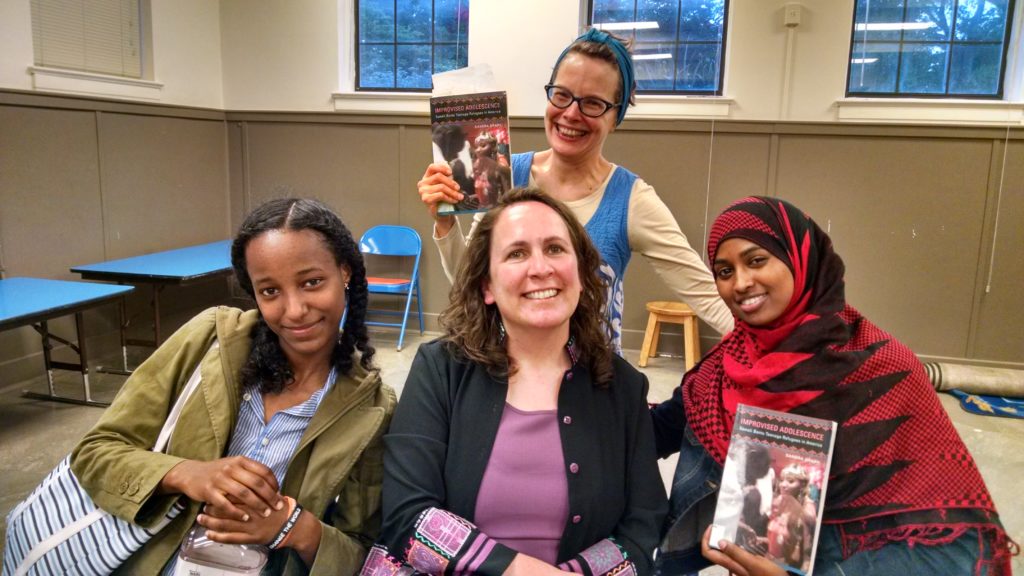The first stop on our morning in Lexington was at the Kentucky Horse Park, which celebrates human relationships with horses and memorializes the long history of horse racing in Kentucky. It also offers shelter to a number of retired race horses. I wandered through the park, taking in the Man o’ War and Secretariat memorials, then watched the parade of breeds, where young riders wore costumes to represent the origin of each breed as they rode out with each horse. An announcer described the breed’s unique characteristics. At the end, spectators go up to pet the horses and then wander around the stables to visit with retired champions and those in the show. One of the horses was a huge flirt with me, and each was awesome to see up close. I have not spent a lot of time around horses, just enough to see the good they do for people who love them. I was able to retrieve Tamu from the car for a second walk around the stables, where he made new friends and then sat with me while they paraded the champions in another show. There are numerous other horse-related attractions in the area, but I wanted to take in a bit of Frankfurt before heading to Louisville for a commitment.

Nearby Frankfurt is Kentucky’s capitol. Like most states, I did not spend time trying to tour the government sites. Instead, I headed to a local landmark, Rebecca Ruth’s Candy, where the bourbon ball was invented. Ruth’s story paints an interesting picture of women’s experience in business in the 20th century. Rebecca and Ruth were both teachers in the Frankfurt area during World War I. To supplement their incomes, they began making chocolate together and selling their creations from a nearby hotel. Ruth was widowed with a small boy during the war, and when Rebecca married shortly after, Ruth bought her out and built a successful business. Sometime later, a fire burnt the factory to the ground and the local banks would not lend Ruth the $50 she needed to rebuild because she was a woman. So she borrowed the life savings of another woman friend and was able to repay with interest within a year. Eventually, after Prohibition, a customer commented that bourbon goes well with chocolate, so Ruth spent two years perfecting the bourbon ball. And they are perfect, a wonderful combination of flavors, heaviness and lightness. Ruth’s family still owns the business and it is worth the trip. In fact, now that I have found their website, I may order some more online.

My next stop was the Frankfurt Cemetery to visit the purported grave of Daniel and Rebecca Boone, which overlooks the Kentucky River and Frankfurt. It’s a beautiful site for taking in the Capitol and the town, but there appears to be a disagreement about whether it holds the remains of the Boones, who died and were originally buried in Missouri in 1820. Twenty-five years later, Kentucky came for the bones to place in a suitably grand grave outside Frankfurt, but legend (and maybe some forensic anthropology) has it that they picked up the wrong remains because Daniel was not buried next to his wife but at her feet. So, maybe some of Daniel is in Kentucky, maybe some of him is in Missouri. Of course, none of this story is told at the Frankfurt burial site, but I am glad I made the trip as the panorama of the city was worth it.

From this point, I had to rush to Louisville because I had a book talk at the Iroquois Library, a visit that was arranged when the librarian reached out to me on the front page of this blog. The library serves a significantly large population of resettled refugees from Somalia, a resettlement that I initially worked on in 2005 when I was setting up the research that would result in this book. (I had to move it because I was caregiving for my father and his health required that he stay in Ohio for consistent medical care, not because I wanted to leave Louisville, where I have spent considerable time.) This book talk was a return home of a sort. Sophie the librarian could not have been more gracious, supplying copious East African food and endless charm and encouragement. There was a much larger turn-out of people that I expected for the talk, which really became a dialogue because many people in the audience were from East Africa and had their own migration experiences to share. In truth, I had started the trip to Kentucky very down about my professional future, and had started this talk a bit daunted by the audience. The welcome and engagement with the book lifted my spirits. One of the audience, a social worker trying to work with young refugee teenagers, asked me to consider staying in Louisville for the rest of my vacation so that I could visit the school and help with program development. While that did not work out, but I would support the effort in a heartbeat. The talk helped me reset my professional compass and lifted my spirits.
I left the library on a high. It had been a full day, full of diverse attractions, great food, and a career epiphany. If you are reading this, thanks Sophie.

